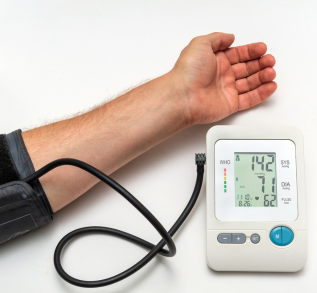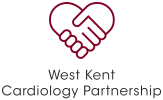
What Is Hypertension (High Blood Pressure)?
Hypertension, more commonly known as high blood pressure, is one of the most widespread health conditions in the UK and one of the most important to understand. It often develops silently, with few noticeable symptoms, yet it significantly increases the risk of serious health issues such as heart disease, stroke, and kidney problems.
We meet patients who are surprised to learn they have hypertension, as it usually causes no discomfort until it begins to affect the heart or arteries. So, lets explain what hypertension is, why it matters, how it’s diagnosed, and the steps you can take to manage it effectively.
Understanding Blood Pressure
Blood pressure measures the force of blood pushing against the walls of your arteries as your heart pumps. It’s recorded as two numbers:
- Systolic pressure: The pressure when your heart beats (the higher number)
- Diastolic pressure: The pressure when your heart rests between beats (the lower number)
Blood pressure is measured in millimetres of mercury (mmHg). A healthy reading is usually around 120/80 mmHg. You’re considered to have hypertension if your readings consistently exceed 140/90 mmHg (or 135/85 mmHg if measured at home).
Consistently high readings mean your heart and arteries are under more strain than they should be, which can lead to long-term damage.
What Causes Hypertension?
Hypertension can develop for many reasons, and in many cases, there is no single identifiable cause. However, several factors can increase the risk, including:
- Being overweight or inactive
- Eating too much salt
- Drinking excessive alcohol or caffeine
- Smoking
- Chronic stress
- Family history of high blood pressure
- Conditions such as diabetes or kidney disease
Sometimes, hypertension develops as a result of another medical condition or certain medications, known as secondary hypertension. Identifying and managing these underlying causes is an important part of treatment.
Why High Blood Pressure Matters
High blood pressure forces your heart to work harder, gradually weakening it and damaging the arteries. Over time, this increases the risk of several serious conditions, including:
- Coronary artery disease (CAD): Narrowing of the arteries that supply blood to the heart
- Heart attack and stroke: Caused by restricted blood flow or blood clots
- Heart failure: When the heart can no longer pump blood effectively
- Kidney disease: Due to reduced blood flow to the kidneys
- Peripheral artery disease: Reduced circulation in the limbs
Hypertension is often called the ‘silent killer’ because it can cause significant damage without clear warning signs. Regular blood pressure checks are essential, even if you feel healthy.
Symptoms of Hypertension
Most people with hypertension experience no symptoms at all. However, when blood pressure becomes extremely high, some may experience:
- Headaches
- Dizziness
- Blurred vision
- Shortness of breath
- Chest pain
These symptoms can also be linked to other conditions, so it’s important not to rely on them as an indicator. The only reliable way to detect hypertension is through regular monitoring.
How Hypertension Is Diagnosed
Blood pressure can be measured quickly and painlessly using a cuff placed around the upper arm. However, because blood pressure fluctuates naturally throughout the day, a single reading isn’t enough for diagnosis.
Cardiologists often recommend:
- Ambulatory blood pressure monitoring (ABPM): Measures your blood pressure over 24 hours while you go about daily activities.
- Home monitoring: Allows you to track readings over several days or weeks.
- In-clinic testing: Provides a controlled environment for comparison.
If consistently high readings are recorded, further tests such as ECGs, echocardiograms, or blood tests may be used to assess whether hypertension has affected the heart or other organs. The British Heart Foundation provides useful information about these tests and their importance.
How Hypertension Is Treated
Managing hypertension involves both lifestyle changes and, in some cases, medication. The aim is to lower blood pressure, reduce strain on the heart, and prevent complications.
1. Lifestyle Changes
For many people, small but consistent adjustments can make a big difference:
- Reduce salt intake: Too much salt raises blood pressure; aim for less than 6g per day.
- Eat a balanced diet: Focus on fruit, vegetables, whole grains, and lean proteins.
- Stay active: Aim for at least 150 minutes of moderate exercise per week.
- Limit alcohol and caffeine: Both can increase blood pressure.
- Maintain a healthy weight: Even a small weight loss can help lower pressure.
- Quit smoking: Smoking damages arteries and compounds the risks associated with hypertension.
- Manage stress: Activities like yoga, walking, or mindfulness can help.
2. Medication
If lifestyle changes alone aren’t enough, your cardiologist may prescribe medication. The most common include:
- ACE inhibitors or ARBs: Relax blood vessels and lower pressure.
- Calcium channel blockers: Help widen arteries.
- Diuretics: Reduce excess fluid in the body.
- Beta-blockers: Slow the heart rate and ease strain on the heart.
Your cardiologist will tailor your treatment plan based on your medical history, test results, and any side effects.
Monitoring and Long-Term Management
Once hypertension is diagnosed, regular follow-up is essential. Monitoring helps ensure your blood pressure remains within target levels and allows adjustments to your treatment plan if needed.
At West Kent Cardiology Partnership, we work closely with patients to provide both short-term treatment and long-term management, combining medical care with practical lifestyle support. Our goal is to make heart health achievable, sustainable, and easy to understand. We often remind patients that lowering blood pressure doesn’t just protect the heart it protects the brain, kidneys, and arteries too.
Preventing Hypertension
Even if your blood pressure is currently normal, prevention is key. You can reduce your risk by:
- Eating less salt and processed food
- Exercising regularly
- Maintaining a healthy body weight
- Managing stress effectively
- Avoiding smoking and excessive alcohol
- Having regular blood pressure checks (especially after age 40)
Simple steps taken now can significantly lower your risk of developing hypertension later in life.
Summary
Hypertension is common but highly manageable when identified early. By making healthy lifestyle choices and following medical advice, most people can control their blood pressure and reduce the risk of long-term complications. We provide expert assessment, diagnosis, and management of hypertension and related heart conditions for patients across Kent and East Sussex. Whether you’ve been diagnosed recently or are looking for preventive guidance, we’re here to help. If you’re concerned about your blood pressure or experiencing related symptoms, you can contact us here to arrange a consultation and blood pressure assessment.

